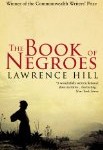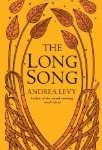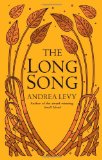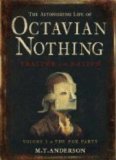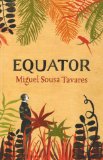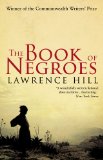
Winner of the Commonwealth Writers’ Prize 2008
Note: This book is called Someone Knows My Name in the US
The Book is Negroes is an epic story following the life of one woman, Aminata Diallo, as she is captured from her West African village and sold as a child slave. We see her grow into a strong woman who battles against adversity, ending up in London amongst key figures in the abolition of the slave trade.
On that slave vessel, I saw things that the people of London would never believe. But I think of the people who crossed the sea with me. The ones who survived. We saw the same things. Some of us still scream out in the middle of the night. But there are men, women and children walking about the streets without the faintest idea of our nightmares. They cannot know what we endured if we never find anyone to listen.
The book gripped me throughout. I immediately connected with Aminata and loved seeing her develop from a frightened child into a brave woman. The fact that the whole story was seen through her eyes meant that by the end of the book I knew everything about her. I felt as though I was part of the story, rather than a distant observer.
I thought I knew a lot about the slave trade, but I was completely unaware of some elements of this book. I has no idea that slaves helped the British fight the Revolutionary War in Manhattan, or that some of those who did were shipped to Nova Scotia; so this book educated as well as entertained me.
There were points when I felt that the plot was a bit too convenient – Aminita seemed to end up in all the right places, just as critical moments of history took place. In the end I can’t complain too much – the story was fantastic and the notes at the end explained a little bit about the history, making me realise that it could almost have happened.
This book is easy to read – I’d describe it as quality fiction, rather than literary fiction. It is the type of book that has broad appeal and so I’m surprised it hasn’t had more coverage in the blogging world. I’d compare it to The Help or A Thousand Splendid Suns – the type of book selected by Richard and Judy or The TV Book Club, enjoyed and discussed by book clubs everywhere.
I highly recommend this book to everyone, if only so you are aware of the numerous ways in which slaves suffered.
The thoughts of other bloggers:
…while the themes are definitely heavy, it doesn’t feel like a burden, even with almost 500 pages to it. Kiss a Cloud
In focusing in on one main character, Hill has personalized history that makes us uncomfortable… BookNAround
Books like this are so important to us and to future generations, lest we should forget. The Book Whisperer
The Book of Negroes is a masterpiece of historical literature, capturing the contradictions of the human condition in graceful, honest prose… Giraffe Days
